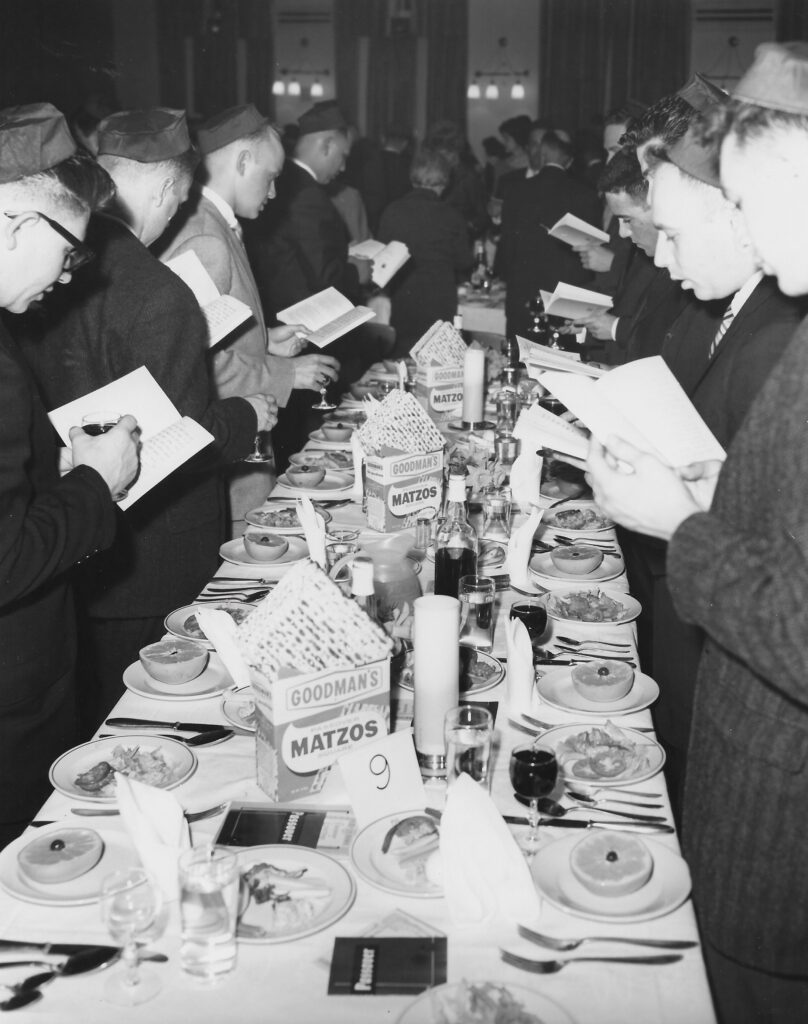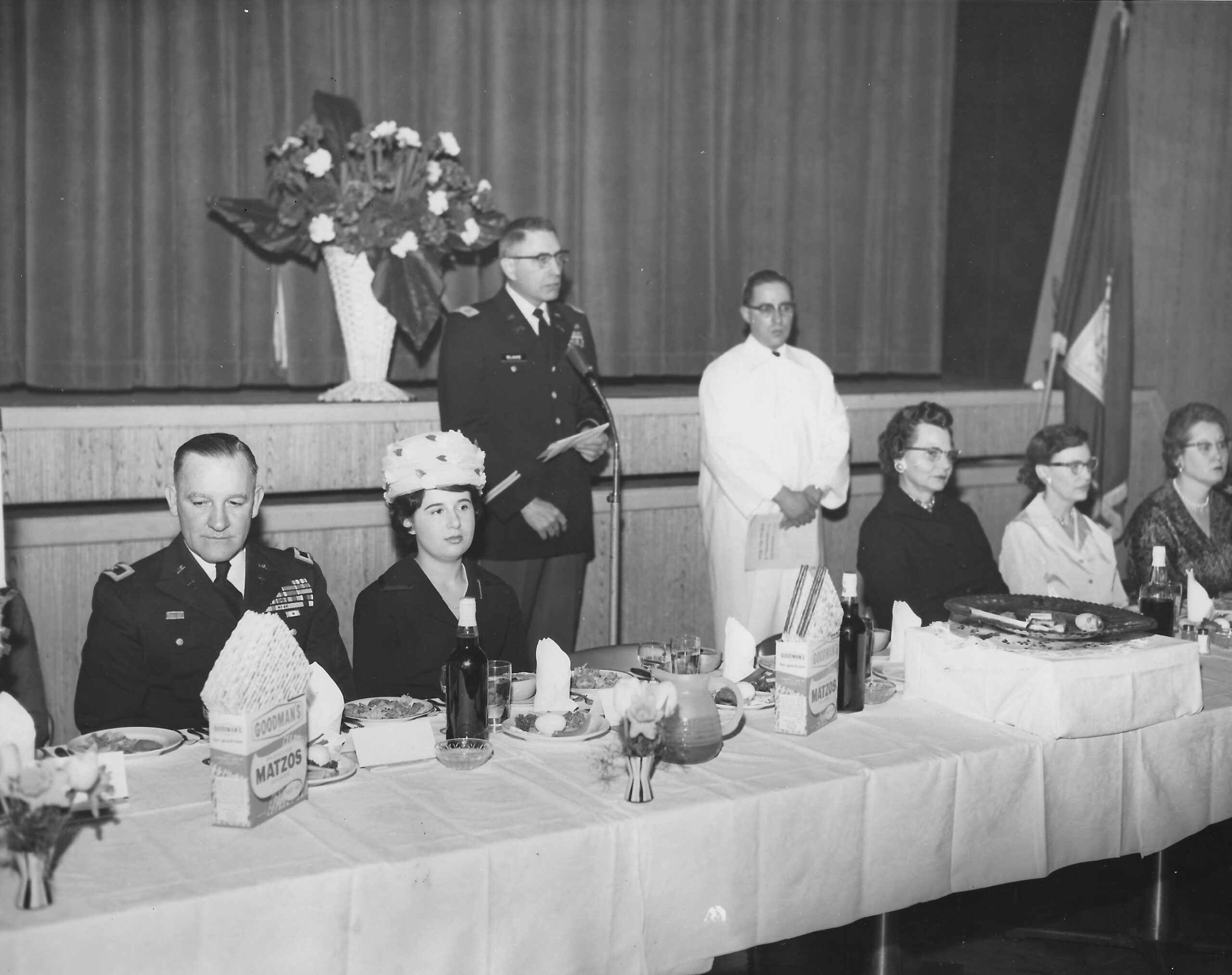Passover Seders in Frankfurt, Germany
Photos: Courtesy of the U.S. Army
1959 – 1963
My husband, Captain Howard Graber, was a Jewish Chaplain in the US Army, stationed in Frankfurt, Germany from 1959 to 1963. His duties were primarily to minister to the Jewish soldiers – enlisted men, officers and their families. However, the congregation also included State Department personnel and their dependents. There were also Holocaust survivors living in Frankfurt. Many participated in the Jewish activities provided by the US Army Chaplaincy services and enjoyed American hospitalities. They often joined us for Friday night services and holiday celebrations, such as Passover Seders.
His area of responsibility extended from Frankfurt to the north, known as the Northern Area Command, which included Berlin. That meant that he often had to travel to various army bases to conduct services and contact Jewish soldiers as to their needs. Often, he had to intervene with non-Jewish officers who had no knowledge of the specific needs of their Jewish personnel under their command.
Besides the High Holidays, Chanukah and Purim, the greatest challenge was to prepare and conduct the Passover Seder. Approximately 500 army personnel, their dependents as well as many civilians had nowhere to go for this important celebration.

The preparations for the Seders started right after Chanukah. It included first ordering all necessary food items from the Jewish Welfare Board (JWB) — matzah, wine, chickens and any other needed items like Haggadahs and yarmulkas. Then he had to negotiate with the local mess hall to plan koshering the kitchen equipment and utensils. He also had to explain to the cooks the kosher ingredients and other requirements for the meals.
Howard sent Chapel bulletins with an invitation and sermonette, dates, times, explanations and other items of interest to be sent to members. Often there were more consultations with military commanders to allow Jewish soldiers passes to attend the services and the Seders. Publicity was sent to the military newspaper, Stars and Stripes, to notify those who might not be aware of the special events.
The Chief Chaplain, as well as chaplains of other denominations, the army commander and some other high officials were invited to attend with their spouses and given the opportunity to “say a few words.”
Of course, all had to be coordinated, checked and rechecked to make sure everything would run smoothly.
The evening of the Seder was met with great anticipation. Long tables were set up with the important guests seated at the head table. Howard would first greet everyone and introduce the VIPs.
Sometimes we were lucky to be able to have a guest cantor, which was a relief for Howard. Otherwise, he alone would conduct the whole Seder, including the prayers, text recitations and the traditional songs. The more than 500 participants in attendance made this evening very special.
I had very little to do with all these preparations except getting our house ready for Pesach, showing up at the Seder and playing hostess to the high-ranking guests, greeting our regular members and being “the Chaplain’s wife.”
Read more by Felicia Graber.


Felicia, It’s always intresting to read a different take on a familiar story. Thanks for sharing.